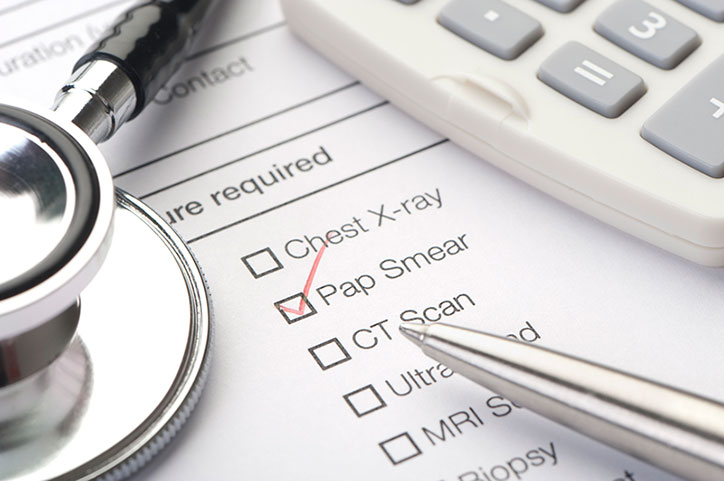
The United States Preventive Services Task Force has issued recent guidelines for screening for cervical cancer. As a woman, it is important to know how this affects you and your healthcare. At Virginia Beach OBGYN, we are committed to providing you with all you need to take charge of your health.
What Causes Cervical Cancer?
Most cervical cancer is caused by the Human Papilloma Virus, or HPV. It is estimated that by the age of 50, nearly 80 percent of women will have had one form of HPV. In most cases, HPV resolves itself on its own within two years of contracting the virus. However, in some cases HPV can cause the development of abnormal cells which can become precancerous, eventually leading to cervical cancer if not evaluated or treated. A pap smear is necessary to detect these cells and create a treatment plan if necessary.
What has Stayed the Same?
Guidelines for women between the ages of 21 and 30 have not changed. These guidelines state that women should have a pap smear to screen for signs of cervical cancer once every three years. As long your cervix remains healthy and no abnormalities are detected, this is the schedule which you should continue to follow.
New Guidelines for Women Over 30
Most cases of cervical cancer are diagnosed in women between the ages of 35 and 44. Therefore, women between the ages of 30 and 65 now have three options concerning a pap smear and HPV screening:
- You may have a pap smear once every three years.
- You may have an HPV screening, performed by swabbing the cervix, once every five years.
- You may choose to have a hybrid test that combines a pap smear with an HPV screening once every five years.
A pap smear works by detecting abnormalities in the cells of the cervix which can be an indication of the presence of HPV. The HPV screening alerts your doctor to the presence of HPV, which may lead to developing cervical cancer. Detecting the presence of HPV is key in identifying early signs of cervical cancer for early and effective treatment.
Guidelines for Women Over 65
The US Preventive Services Task Force states that if you have had normal screenings for the previous ten years, you no longer need to have a pap smear to screen for cervical cancer. You should, however, continue to have annual pelvic exams to make sure there are no noticeable changes. Incidence of cervical cancer diagnoses in women over the age of 65 are extremely rare, and changes are usually easily detected through a pelvic exam alone.
Prevention is Key
Each year, more than 4,000 women die of cervical cancer. This is why it is so important that you have routine screenings. Because of the way cervical cancer develops — gradually over 10 to 15 years — it is one of the most preventable types of female cancers. Like all types of cancer, early detection of cervical cancer can allow for effective treatment before the cancer becomes more serious. The screening guidelines that are in place for cervical cancer have allowed incidence of cervical cancer to decline by two percent each year for the past several years. Annual visits to your gynecologist are still important for women even after years of a not having a pap smear collected.
Symptoms of Cervical Cancer
Knowing what to look for in between appointments with your gynecologist can help you determine if you should seek the opinion of a medical professional. Signs such as irregular bleeding between your normal menstrual periods, painful intercourse, or strange vaginal discharge all should be evaluated. You should contact your healthcare professional immediately if you experience symptoms such as:
- Abnormal bleeding
- Pelvic pain in between menstrual periods
- Heavy vaginal discharge that may have a bad odor
- Painful urination
- Increased frequency of urination
Even in the absence of HPV or cervical cancer, these symptoms can all be signs of other health concerns, so it is important to contact us at Virginia Beach OBGYN if you are experiencing any of these symptoms.
Virginia Beach OBGYN
At Virginia Beach OBGYN, we are committed to providing women of all ages the best comprehensive healthcare available. It is also our mission to empower you to take charge of your own healthcare. Regular testing and annual exams can help you maintain a long and happy life.
